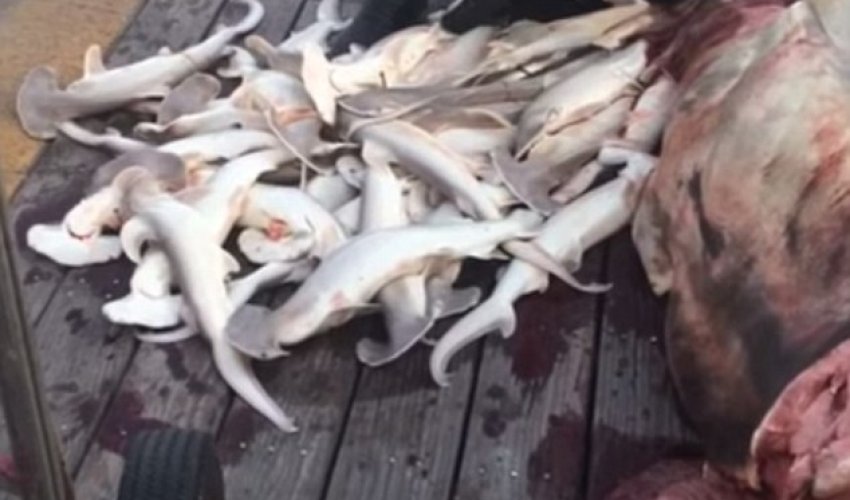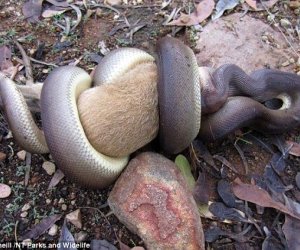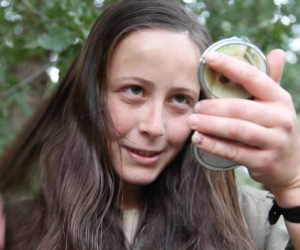Fisherman removes 34 baby sharks from the body of dead hammerhead mother

A group of people in Florida watched on in horror as a fisherman removed 34 dead baby sharks from the body of a 13-foot hammerhead that was caught in the nets of a charter boat on a recent fishing expedition.
Witnesses say the 830-pound shark - an endangered species - appeared to have bullet or spear holes in its body and that its fin had been cut off.
The incident occurred earlier this month on the Harborwalk in Destin after the animal was pulled in by a charter called 'Phoenix'.
'My oldest son, he said ''Dad, this is wrong,'' and I said I didn't know what was endangered or what wasn't,' onlooker Jeff Bratcher, who filmed the scene, told AL.com.
'We're from Oklahoma, all we know about is catching catfish.'
Great hammerheads are listed as endangered on the International Union for Conservation of Nature's 'Red List'.
However they are not protected by the U.S. government under the Endangered Species Act, according to AL.com.
The meat from hammerheads is not typically eaten, however their fins are used for the delicacy shark fin soup.
Nine U.S. states prohibit the possession or sale of shark fins, but it is legal in Florida.
The video taken by Bratcher and posted to YouTube shows one fisherman cutting out the dead babies.
A female passer-by can be heard counting as each of the pups are pulled out.
The final count is 34.
All of the babies were dead, and the video shows the man throwing them in a bucket.
Some people can be heard laughing the video, while one woman complains about the smell.
A Facebook page belonging to the charter boat posted a message and some photos about the catch, however soon deleted it after a flurry of negative comments.
Before the post was deleted, the captain had written that the shark was caught in international waters, more than nine miles away from shore.
Bratcher's video - viewed over 300,000 times - has also received many negative comments, with many calling for it to be pulled down.
Female great hammerheads are usually larger than males and give live birth to litters of 6 to 42 pups approximately every two years.
The lifespan of the species can be up to 40 years.
(dailymail.co.uk)




www.ann.az
Similar news
Similar news
Latest news 
More news 



































 Photo
Photo 



 Video
Video 

